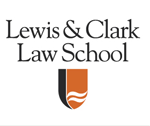Animal Law Review
First Page
133
Abstract
Drawing upon various schools of legal thought, this Essay explores how ideological and non-legal factors influence the adjudication process in animal law cases. The Legal Realist and Critical Legal Studies movements highlighted the indeterminacy present in legal doctrine and undermined trust in judges’ ability to arrive at “correct” answers to legal questions. In the midst of such indeterminacy, where legal texts do not predetermine legal outcomes, judges tend to render decisions that are consistent with pervasive societal norms and existing distributions of political power. Starting from these premises, the Author questions whether innovative and creative impact litigation by the animal law movement can succeed in fundamentally challenging speciesism through a legal system that is pervasively hostile to the interests of animals. Although incremental and meaningful gains are possible through litigation, we must recognize the limits of legal reform in the short-term. Although such limitations are typically seen as cause for despair, the Author argues that recognizing our powerlessness can be a source of compassion and an opportunity to experience our shared existential vulnerability with animals.
Recommended Citation
Matthew Liebman,
Who the Judge Ate for Breakfast: On the Limits of Creativity in Animal Law and the Redeeming Power of Powerlessness,
Animal L. Rev.
133
(2011).
Available at:
https://lawcommons.lclark.edu/alr/vol18/iss1/6

